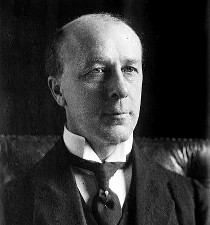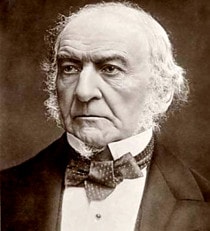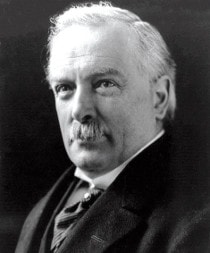The word dictatorship generally evokes the idea of political dictatorship with its police forces, its prisons, its concentration camps, forced labor, and execution squads for those who dare to defy the decrees of the dictator.
But there have been, and are, other forms of dictatorship which also, by other means, put into the hands of the dictator the lives of those upon whom he would seek to impose his will.
A dictator who controlled all the means of living — say, all nourishment — would have no need of police or prisons in order to impose his will upon others. Everyone would be obliged to bow to his wishes, or die of starvation.
Now, in our modern world where the things necessary to sustain life come from a variety of sources, the means of staying alive can only be procured on the market, since very few individuals produce all they need in order to live. In other words, an individual cannot sustain himself in life unless he has the means of paying for such products; in other words, he must have money.
Whosoever is able to gain complete control of the means of paying and is able to free or restrict it, ration it or otherwise do with it as he wants, is in the position of being the complete master of the entire population which depends upon money to live. Such power is actually embodied today in our banking system, which includes chartered banks and central banks alike.
 Reginald McKenna was, in 1834, president of the Midland Bank, one of the five great commercial banks of England. Previously he had held the post of Chancellor of the Exchequer—or Minister of Finance. Now this was a man who certainly knew what he was talking about where the subject of banking is concerned. He made the following statement in January of 1934 before a meeting of the shareholders of the Midland Bank:
Reginald McKenna was, in 1834, president of the Midland Bank, one of the five great commercial banks of England. Previously he had held the post of Chancellor of the Exchequer—or Minister of Finance. Now this was a man who certainly knew what he was talking about where the subject of banking is concerned. He made the following statement in January of 1934 before a meeting of the shareholders of the Midland Bank:
“I fear that the ordinary citizen would not like to hear that the banks can create money and that they do so. The amount of money in existence varies only with the action of the banks in increasing or diminishing deposits. We know how this is effected. Every bank loan and every bank purchase of securities creates a deposit and every repayment of a loan and every bank sale destroys one. And those who control the credit of a nation direct the politics of its governments and hold the destiny of the people in the palms of their hands.”
What this banker said was admirably echoed seven years later by Pope Pius XI, in his encyclical, Quadragesimo Anno:
“Immense power, and despotic economic domination are concentrated into the hands of a few... This power is especially irresistible among those who, by their control of money, are also able to regulate and govern credit, dispensing it as they see fit. In this way, they distribute, as it were, the lifeblood of the economic body whose life they hold between their hands with the result that without their permission no one can even breathe.”
This financial dictatorship dominates even those governments which seem to be the most powerful. Statesmen who have had to genuflect before this power have not hesitated to avow this domination of the money-makers.
 One of the most illustrious of these statesmen was Gladstone, four times prime minister of England (1868-74, 1880-85, for several months in 1886 and from 1892 to 1894). He was, first, Chancellor of the Exchequer (Minister of Finance) before becoming leader of the Liberal Party. Gladstone had strongly criticized the financial policies of Disraeli, but once he arrived in the same post, he quickly realized who really held the reins of power. Here is what he had to say. “City” here means the financial circle of London, It corresponds to Wall Street in New York City or St. James Street in Montreal.
One of the most illustrious of these statesmen was Gladstone, four times prime minister of England (1868-74, 1880-85, for several months in 1886 and from 1892 to 1894). He was, first, Chancellor of the Exchequer (Minister of Finance) before becoming leader of the Liberal Party. Gladstone had strongly criticized the financial policies of Disraeli, but once he arrived in the same post, he quickly realized who really held the reins of power. Here is what he had to say. “City” here means the financial circle of London, It corresponds to Wall Street in New York City or St. James Street in Montreal.
“From the time I took office as Chancellor I began to learn that the State held, in the face of the Bank (of England) and City, an essentially false position as to finance... The hinge of the whole situation was this: the government itself was not to be a substantive power in matters of finance, but was to leave the money power supreme and unquestioned.”
 Woodrow Wilson, when president of the United States, had these remarks to make about the money power and the men who controlled it:
Woodrow Wilson, when president of the United States, had these remarks to make about the money power and the men who controlled it:
“A great industrial nation is controlled by its system of credit. Our system of credit is privately concentrated. The growth of the nation, therefore, and all our activities are in the hands of a few men... We have come to be one of the worst ruled, one of the most completely controlled and dominated governments in the civilized world—no longer a government by free opinion, no longer a government by conviction and the vote of the majority, but a government by the opinion and the duress of small groups of dominant men.”
Long before Wilson, Thomas Jefferson, who was president of the United States from 1801 to 1809, wrote this in 1816:
 “I sincerely believe that banking establishments are more dangerous than standing armies, and that the principle of spending money to be paid by posterity, under the name of funding, is but swindling futurity on a large scale.”
“I sincerely believe that banking establishments are more dangerous than standing armies, and that the principle of spending money to be paid by posterity, under the name of funding, is but swindling futurity on a large scale.”
The same Jefferson also said, on another occasion:
“If the American people ever allow private banks to control the issue of their currency, first by inflation, then by deflation, the banks and corporations that will grow up around them will deprive the people of all property until their children wake up homeless on the continent their Fathers conquered.”
Abraham Lincoln, who was President of the United States of America from 1860 until his assassination in 1865, wrote the following on Nov. 21, 1864 to Colonel William F. Elkins, not long before the end of the American Civil War:
 “As a result of the war, corporations have been enthroned and an era of corruption in high places will follow, and the money power of the country will endeavor to prolong its reign by working upon the prejudices of the people until all wealth is aggregated in a few hands and the Republic is destroyed.”
“As a result of the war, corporations have been enthroned and an era of corruption in high places will follow, and the money power of the country will endeavor to prolong its reign by working upon the prejudices of the people until all wealth is aggregated in a few hands and the Republic is destroyed.”
Mr. Salmon P. Chase, Secretary of the Treasury under Abraham Lincoln, uttered these prophetic words:
“My agency in procuring the passage of the National Bank Act was the greatest financial mistake of my life. It has built up a monopoly that affects every interest in the country. It should be repealed. But before this can be accomplished, the people will be arrayed on one side and the banks on the other, in a contest such as we have never seen before in this country.”
Talking about the assassination of Lincoln, Otto von Bismarck, Prime Minister of Prussia and later first Chancellor of Germany, wrote:
“The death of Lincoln was a disaster for Christendom... I fear that foreign bankers with their craftiness and tortuous tricks will entirely control the exuberant riches of America and use it to systematically corrupt modern civilization. They will not hesitate to plunge the whole of Christendom into wars and chaos in order that the earth should become their inheritance.”
 At the end of the first world war, the Allies convened at Versailles to draw up a treaty which would determine the status of the vanquished with respect to the victors. This Treaty of Versailles, which contained within itself the germs of another war, was the work of the financiers rather than of statesmen. Lloyd George represented Great Britain; Clemenceau, France; and Wilson, the United States. Lloyd George later declared:
At the end of the first world war, the Allies convened at Versailles to draw up a treaty which would determine the status of the vanquished with respect to the victors. This Treaty of Versailles, which contained within itself the germs of another war, was the work of the financiers rather than of statesmen. Lloyd George represented Great Britain; Clemenceau, France; and Wilson, the United States. Lloyd George later declared:
“The international bankers swept statesmen, politicians, journalists and jurists all to one side and issued their orders with the imperiousness of absolute monarchs.”
Even if we did not have these frank avowals of great statesmen, still the ordinary man knows very well that the best-intentioned candidate for election to government becomes impotent, once he arrives in the legislature to realize the projects he had in mind for the welfare of the people. And the reason for this is that the real power does not issue forth from the ballot box but resides with those who are not ejected but who control money and credit.
The founder of the House of Rothschild once declared cynically: “Just let me have the control of a nation’s credit and I care not who makes its laws.”
It is not a parliamentary majority—regardless of its strength or of the party which may hold it—that is going to break the power of money. In order to dethrone Mammon, another power is necessary: nothing less than the strength of a people who are not only enlightened and educated but a people who are impregnated with a philosophy which is contrary to the one which finance has made to prevail. A people which wishes to be free of the dictatorship of Mammon must first of all rid itself of the cult of Mammon entirely and take to itself the principles of a philosophy whose principles are in accord with a healthy economy.
This is the philosophy which is embraced by the Social Crediters who follow the teachings laid down in MICHAEL. Not only must the people embrace these doctrines but they must strive to carry them into effect, employing whatever time is left to them after they have devoted whatever hours are necessary to earning a livelihood. It is only through a Social Credit mentality and through Social Credit habits that a Social Credit civilization will be reared.